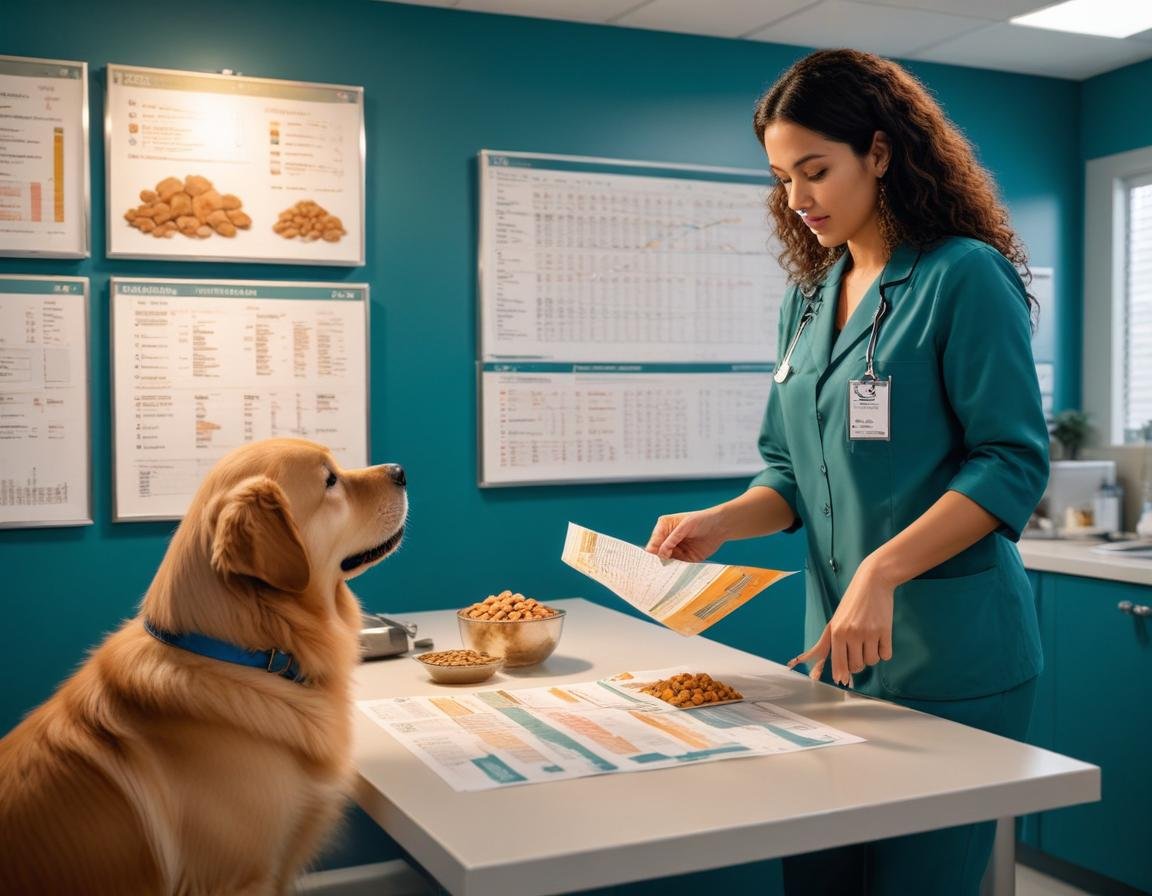As our furry friends age, their dietary needs evolve. Choosing the best dog food for senior pets can significantly impact their health and quality of life. This guide will walk you through essential nutrition tips to ensure your senior pet thrives in their golden years.
Understanding Senior Pets’ Nutritional Needs
Why Diet Changes as Pets Age
As dogs get older, their metabolism slows down, and their energy levels decrease. The nutrients they need to stay healthy change as well. This means that their food should be tailored to address issues such as lower activity levels, slower digestion, and specific health concerns like arthritis or kidney disease. The best dog food for senior pets is designed to provide these nutrients while being easier on their aging systems.
Common Health Issues in Older Pets
Aging pets often face a variety of health challenges that can affect their diet. Understanding these issues is key to selecting the right food:
- Arthritis and Joint Pain: As dogs age, their joints can become stiff and painful, making movement difficult. Foods rich in omega-3 fatty acids, glucosamine, and chondroitin can help alleviate these symptoms by reducing inflammation and supporting joint health.
- Digestive Sensitivities: Senior pets may develop more sensitive stomachs. Foods that are easily digestible and gentle on their digestive systems are crucial. Look for options that include prebiotics or probiotics to aid in digestion.
- Weight Management Challenges: Older dogs often face weight gain due to a decrease in physical activity. Foods lower in calories but still rich in nutrients can help maintain a healthy weight while ensuring that your dog gets all the necessary vitamins and minerals.
Key Nutrients for Aging Pets
As dogs age, their nutritional needs change, and it’s important to choose a diet that addresses these evolving needs.
Protein for Muscle Maintenance
Maintaining muscle mass is important for older dogs, especially since they may become less active and lose muscle tone. High-quality protein is essential to keep muscles strong and maintain a healthy metabolism. Lean meats like chicken, turkey, and fish are excellent sources of protein for senior dogs.
Healthy Fats for Joint Health
Healthy fats are essential for joint health and overall well-being. Omega-3 fatty acids, found in fish oils and flaxseeds, are particularly beneficial for reducing inflammation in the joints and improving mobility. Omega-6 fatty acids also play a role in skin and coat health, so look for dog food that includes these healthy fats.
Fiber for Digestive Health
Fiber helps maintain regular digestion, which can become slower as dogs age. A diet rich in fiber, such as that from sweet potatoes, pumpkin, and brown rice, can help keep your dog’s digestive system functioning properly and prevent constipation.
Vitamins and Minerals for Immune Support
Aging dogs may have weaker immune systems, so antioxidants like vitamins C and E can help support their overall health. Calcium is also important for maintaining strong bones and teeth, which are often at risk as dogs get older. Look for dog food that is fortified with these essential nutrients.
Best Types of Food for Senior Pets
When it comes to senior dog food, there are several options to consider, each offering specific benefits.
High-Quality Commercial Senior Pet Food
Many commercial dog food brands offer formulas specifically designed for senior pets. These foods are carefully balanced to provide the necessary nutrients for aging dogs. Brands like Hill’s Science Diet and Royal Canin are well-known for producing high-quality, senior-friendly dog food that addresses the unique needs of older pets.
Homemade Diets: Balancing Nutrients at Home
If you prefer to prepare your dog’s meals at home, it’s essential to ensure they receive the right balance of nutrients. Homemade diets should be designed in consultation with your veterinarian to ensure that they meet the nutritional needs of senior pets. Homemade meals can include ingredients like lean meats, vegetables, and whole grains, but should always be vet-approved.
Specialized Diets for Specific Health Conditions
Some senior dogs may have specific health conditions, such as kidney disease or diabetes, that require a specialized diet. Always consult with your veterinarian to find the best dog food for senior pets that addresses these specific health concerns.
Foods to Avoid for Senior Pets
Not all food is beneficial for aging dogs. Some ingredients can harm them, making it essential to read labels carefully.
Common Ingredients That Harm Aging Pets
Avoid food that contains fillers like corn and soy, artificial preservatives, or excessive amounts of sodium. These ingredients can contribute to weight gain, digestive issues, and long-term health problems. It’s crucial to prioritize high-quality, natural ingredients that support overall health.
Reading Labels: What to Watch For
When shopping for senior dog food, look for high-quality protein sources like chicken or fish listed as the first ingredient. Avoid food that lists “meat meals” or “by-products” as these can be lower in quality. Whole food ingredients should always be your first choice to ensure your dog is getting the best nutrition possible.
Hydration Tips for Senior Pets
Proper hydration is just as important as nutrition, especially for senior dogs. Older pets are more susceptible to dehydration, which can worsen existing health problems.
Importance of Proper Hydration
Dehydration can lead to urinary tract infections, kidney issues, and digestive problems. Senior dogs may not always drink enough water on their own, so incorporating wet food or adding broth to their meals can help improve hydration levels.
Signs Your Senior Pet Isn’t Drinking Enough
Watch for signs such as lethargy, dry gums, or reduced urination, which may indicate dehydration. If you notice any of these signs, consult your veterinarian.
Creative Ways to Encourage Water Intake
Encouraging your senior dog to drink more water can be as simple as adding flavor to their water bowl, like a low-sodium broth, or investing in a pet water fountain. Moving water often entices pets to drink more.
Feeding Schedule and Portion Control
Managing your senior pet’s diet is crucial for their health and longevity. An appropriate feeding schedule can help maintain a healthy weight and avoid overfeeding.
How Often Should Senior Pets Eat?
It’s generally a good idea to divide meals into smaller portions and feed your dog two to three times a day. This can help with digestion and maintain steady energy levels throughout the day.
Portion Size Adjustments for Longevity
Senior pets tend to be less active, so it’s essential to adjust portion sizes to prevent weight gain. Measure portions accurately and adjust them based on your pet’s activity level and weight.
Consulting with Your Veterinarian
Your veterinarian plays an essential role in determining the best dog food for senior pets. They can help create a tailored diet plan based on your dog’s breed, age, and health condition.
Tailoring a Diet for Your Pet’s Unique Needs
Veterinarians can provide valuable insights into the specific nutritional needs of your senior pet, helping you choose the best food that will benefit their health and longevity.
Monitoring and Adjusting as Pets Age
As your pet continues to age, their nutritional needs may change. Regular check-ups with your veterinarian will help ensure that their diet stays aligned with their evolving health requirements.
Conclusion
Providing the best dog food for senior pets is one of the most impactful ways to ensure they live a long, healthy, and happy life. By focusing on nutrient-rich, high-quality foods tailored to their specific needs, you’ll help them age gracefully and maintain their quality of life.
FAQs
- What is the best dog food for senior pets with joint issues?
Look for options enriched with glucosamine and omega-3 fatty acids, such as Hill’s Science Diet or Blue Buffalo Senior formulas. - How can I tell if my senior pet’s diet is working?
Signs of a suitable diet include consistent energy, healthy weight, and a shiny coat. - Should I give my senior pet supplements?
Always consult your vet before adding supplements like probiotics or omega-3 capsules. - Can senior pets eat the same food as younger pets?
No, senior pets have unique nutritional needs, which are better addressed by diets specifically designed for them. - How do I transition my pet to a senior-friendly diet?
Gradually mix the new food with their current diet over 7-10 days to prevent stomach upset.




